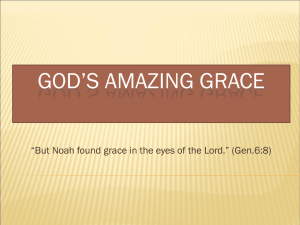NIHES Disease specific 5
advertisement
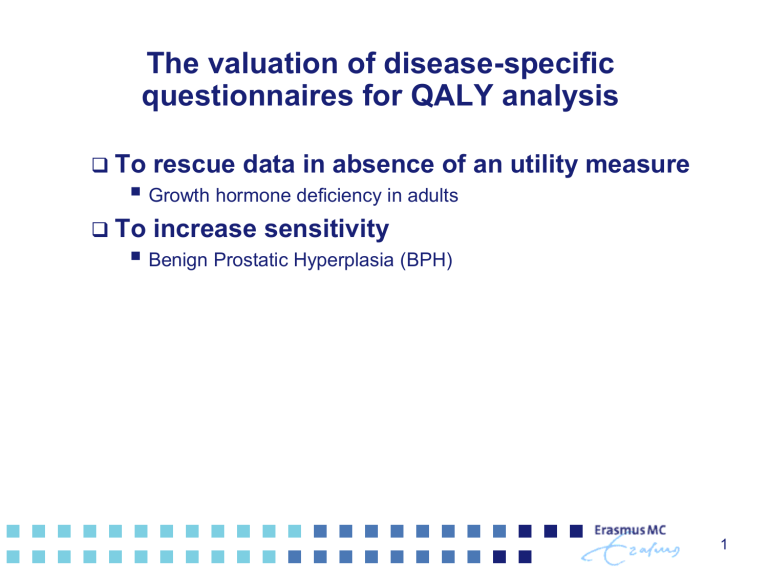
The valuation of disease-specific questionnaires for QALY analysis To rescue data in absence of an utility measure To increase sensitivity Growth hormone deficiency in adults Benign Prostatic Hyperplasia (BPH) 1 Mapping Trying ‘to map’ disease characteristics on EQ-5D etc. Nord E. Cost-utility analysis of Melphalan plus Prednisone with or without Interferon Alfa-2b in newly diagnosed multiple myeloma. Pharmacoeconomics 1997;12:89-103. Can be done behind the desk Very quick… Very dirty… A low face validity… 2 Mapping DALY style 3 QoL-AGHDA Quality of Life Adult Growth Hormone Deficiency Assessment 25 yes/no items Internet panel N = 1075 Both AGDHA and EQ-5D 4 From AGDHA to utilities (QALY) EQ-5D: 5 dimensions AGHDA: 25 dimensions Utility Algorithm Utilities Sum Score Regression Total score 5 Regression Dutch AGHDA sum score on EQ-5D 1 EQ-5D NL 0.8 0.6 EQ-5D = 0.980 - 0.0198 x AGHDA R2 = .344 0.4 0.2 0 0 5 10 15 20 25 AGHDA 6 EQ-5D-3L versus EQ-5D-5l Zet bij iedere groep in de lijst hieronder een kruisje in het hokje achter de zin die het best past bij uw eigen gezondheidstoestand vandaag. Zet bij iedere groep in de lijst hieronder een kruisje in het hokje achter de zin die het best past bij uw eigen gezondheidstoestand vandaag. Mobiliteit Mobiliteit Ik heb geen problemen met lopen Ik heb een beetje problemen met lopen Ik heb matige problemen met lopen Ik heb ernstige problemen met lopen Ik ben niet in staat niet om te lopen Ik heb een beetje problemen met mijzelf wassen of aankleden Ik heb matige problemen met mijzelf wassen of aankleden Ik heb ernstige problemen met mijzelf wassen of aankleden Ik ben niet in staat mijzelf te wassen of aan te kleden Ik heb enige problemen met lopen Ik ben bedlegerig Ik heb enige problemen om mijzelf te wassen of aan te kleden Ik ben niet in staat mijzelf te wassen of aan te kleden gezins- en vrijetijdsactiviteiten) Ik heb enige problemen met mijn dagelijkse activiteiten gezins- en vrijetijdsactiviteiten) Ik heb geen problemen met mijn dagelijkse activiteiten Ik heb een beetje problemen met mijn dagelijkse activiteiten Ik heb matige problemen met mijn dagelijkse activiteiten Ik heb ernstige problemen met mijn dagelijkse activiteiten Ik ben niet in staat mijn dagelijkse activiteiten uit te voeren Dagelijkse activiteiten (bijv. werk, studie, huishouden, Ik heb geen problemen met mijn dagelijkse activiteiten Dagelijkse activiteiten (bijv. werk, studie, huishouden, Zelfzorg Ik heb geen problemen om mijzelf te wassen of aan te kleden Zelfzorg Ik heb geen problemen met mijzelf wassen of aankleden Ik heb geen problemen met lopen Ik ben niet in staat mijn dagelijkse activiteiten uit te voeren Stemming Pijn/klachten Ik heb geen pijn of andere klachten Ik heb matige pijn of andere klachten Ik heb zeer ernstige pijn of andere klachten Pijn/ongemak Ik heb geen pijn of ongemak Ik heb een beetje pijn of ongemak Ik heb matige pijn of ongemak Ik heb ernstige pijn of ongemak Ik heb extreme pijn of ongemak Angst/somberheid Ik ben niet angstig of somber Ik ben een beetje angstig of somber Ik ben matig angstig of somber Ik ben erg angstig of somber Ik ben extreem angstig of somber Ik ben niet angstig of somber Ik ben matig angstig of somber Ik ben erg angstig of somber Cross walk 8 Validation 9 Calculation 10 The AGHDA has generic features… AGHDA I have to struggle to finish jobs I feel a strong need to sleep during the day I often feel lonely even when I am with other people EQ-5D I have some problems with performing my usual activities I am moderate anxious or depressed makes sense AGHDASUM 30 20 10 Percent Correlation 0 .00 4.00 2.00 AGHDASUM 8.00 6.00 12.00 10.00 16.00 14.00 20.00 18.00 24.00 11 22.00 But what if the measure has little generic features? International Symptom Prostate Score (IPSS) BPH Enlargement of the prostate Causes voiding problems in elderly men • Difficulties to pee 7 questions: How often have you had to push or strain to begin urination? had a sensation of not emptying your bladder completely? had to urinate again less than two hours after you finished urinating? found you stopped and started again several times when you urinated? you find it difficult to postpone urination? had a weak urinary stream? How many times did you most typically get up to urinate from the time you went to bed at night until the time you got up in the morning? 12 Does the EQ-5D make sense in BPH? MOBILITY SELF-CARE I have no problems with self-care I have some problems….. I am unable… USUAL ACTIVITIES I have no problems in walking about I have some……. I am confined to bed I have no problems with performing my usual activities I have some problems… I am unable…. PAIN/DISCOMFORT I have no pain or discomfort I have moderate ….. I have extreme…….. ANXIETY/DEPRESSION I am not anxious or depressed I am moderately…….. I am extremely….. 13 Can we convert the IPSS outcomes into utilities? Attribute TTO values to the IPSS health states Problem: IPSS has 279.936 health states 7 items, 6 answer levels = 6x6x6x6x6x6x6 = 279.936 health states Too many to value with TTO Reduce number of health states Reduce items • Factor analysis Reduce answer levels • Combine answer levels 14 Reduce number of health states Factor analysis on patients IPSS responses N = 1414 Two main factors Obstructive (alpha= 0.8018) Irritative (alpha= 0.7165) • Confirmed in literature Factors divided in 3 levels Number of health states reduced to 33 = 9 Can be valued directly TTO General public, representative for gender/age (N=170) 15 Exercise Value the 9 health states of the reduced IPSS Tests feasibility: can it be done? Compare values with earlier research Test reliability: can we repeat the observation? • Scientific prove (observation is independent of examination) • Do different groups of people have different values 16 QALY weights for BPH utilities (TTO) 1 0,95 0,9 0,85 0,8 0,75 0,7 0,65 irritative 0,6 seldom/never sometimes almost always 0,55 0,5 ys es lwa a ver tim t e e s n / o som om alm seld obstructive 17 TTO Comparing ISPOR 2003 with population 1.0 0.9 0.8 0.7 0.6 0.5 0.4 0.3 0.2 0.1 0.0 11 12 13 21 22 23 13 23 33 Health states IPSS ISPOR 2003 Population 18 How to come to these values? Obstructive score Irritative score Sum (IPSS1 + IPSS2 +IPSS4 + IPSS6) Sum (IPSS3 + IPSS5 +IPSS7) As example: obstructive 1 and irritative 2 = uti 1_2 Answer levels: Quality of life values: Domain score Obstructive ( <= 4) Irritative Level irritative Obstructive 1 ( >= 5 & <= 16) Obstructive 2 1.00 .97 .95 1 ( >= 17) Obstructive 3 .97 .94 .92 2 (<= 3) Irritative 1 .92 .90 .87 3 ( >= 4 & <= 9) Irritative 2 1 2 3 ( >= 10) Irritative 3 Obstructive 19 Treatment effect 0,98 0,97 0,96 utilities 0,95 0,94 0,93 0,92 0,91 surgery (n= 144) alpha-blockers (n=33) finasteride (n=35) watchful waiting (n=159) 0,9 baseline follow up 20 Disease specific utilities are not on a generic scale Generic top anchor Specific top anchor Healthy No disease specific problems Death All disease specific complains absence of any impairment absence of specific impairment Co morbidity might still be present Disease specific utilities are a subscale of a generic scale No disease specific problems Healthy Rescaling necessary All disease specific complains Death Raw disease specific trade-off ten to overestimated gains Value of life years “traded off” in TTO differently Healthy subject: 1 life year is 1.0 QALY Sick subject: 1 life year is 0.8 QALY Life years of healthy persons are more worth than those of sick Disutility is proportional 20% trade off at 1.00: disutility = 0.20 20% trade off at 0.80: disutility = 0.16 20% trade off at 0.60: disutility = 0.12 23 Specific utilities should be corrected for average morbidity Solution: multiplicative model Multiply disease specific value with average value Values have to be multiplied by average value for age group. For instance in IPSS • male age 55-64: overall QoL utility: 0.81 • Most severe BPH: 0.87 • Male age 55-64 with most severe BPH: 0.81 x 0.87 = .7047 Maximum gain reduces from Raw score Adjust score 15 % reduction 1.00 - 0.87 = 0.13 0.81 - 0.70 = 0.11 24 Rue of thumb Overestimated CE-ration by 15% using specific utilities Proposed by Fryback & Lawrence, MDM 1997 • For not completely the same problem… • …for own health states, not imaginable health states 25 Conclusion We validated the IPSS for the use in economic appraisal Now, IPSS has QALY-weights New and already published research can be converted into QALYs Advantage use specific QALYs measures High sensitive disease specific measures for QALY-analysis Rescuing data Disadvantages Not directly compatible with generic utilities ± 15 % correction needed in disease specific 26
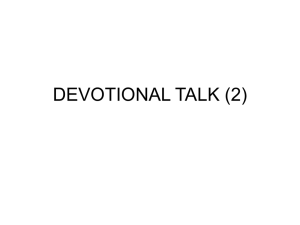
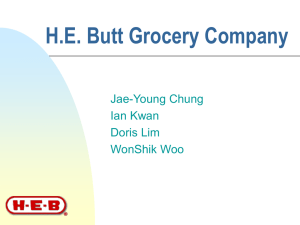
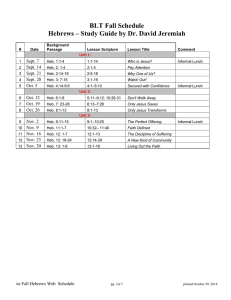
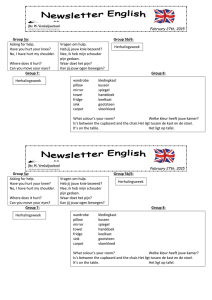

![HEB Market Analysis[1]](http://s2.studylib.net/store/data/005485404_1-54cabf3bf07d6c92d73f2b15077d5f55-300x300.png)



